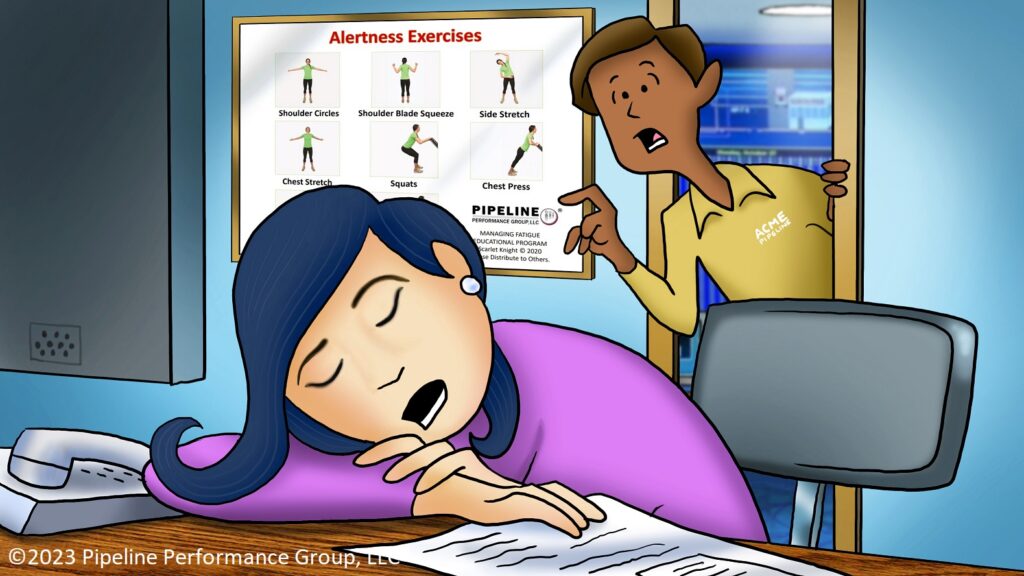We often hear the directive for adults to get 7 to 9 hours of sleep each night in order to meet the physical requirements of restoration that our bodies need. During that span of time, our brains go through cycles of rapid eye movement (REM) sleep and non-REM sleep, each with a specific purpose. To properly cleanse and refresh the brain, our bodies must go through four to six of these cycles, with each cycle lasting approximately 90 minutes.[1]
Prioritizing sleep is an important part of maintaining our health. Shift schedules must allow for Controllers to get at least eight hours of continuous sleep between shifts while also accounting for commute time. Getting the right quantity and quality of sleep is essential to being fit for duty.
There are many things that can disrupt the quality of sleep we enjoy. A restless bed partner, loud noise, and pain or illness are just a few of the things that can negatively affect our sleep. Many people suffer from sleep disorders; sleep disorders are a significant contributor to poor-quality sleep. Sleep disorders compromise alertness no matter what other measures we might take to address the risks of fatigue. The good news is that sleep disorders are treatable. Here’s a checklist to help you decide if you need to seek medical support. If you are experiencing one or more of these symptoms, you should discuss the issue with a medical professional.
- You are told that you snore loudly and often.
- You are told that you stop breathing or sound as though you are having difficulty catching your breath when asleep.
- You find yourself becoming sleepy or falling asleep when performing your daily activities, especially those that are sedentary.
- You find yourself having trouble falling asleep regularly.
- You experience a nervous, creeping, or tingling feeling in your legs when trying to sleep.
- Your sleep is regularly interrupted due to gastrointestinal distress, a need to urinate, acid reflux, pain or night terrors.
- You are a shiftworker and experience the symptoms of circadian rhythm disorder (similar to jet lag).
If we don’t get the proper amount or quality of sleep that our bodies need, it can affect us in many ways – we may have difficulty learning, remembering and making decisions. Fatigue can lead to changes in our personality – we may be more irritable and short-tempered. A lack of sleep can lower our reaction times which increases the potential for fatigue- related accidents, both on the job and behind the wheel.
Don’t hesitate to seek support so you can enjoy a recharging sleep.
[1] National Heart, Lung and Blood Institute (2022, March 24). Sleep Phases and Stages. How Sleep Works. Retrieved September 6, 2023, from https://www.nhlbi.nih.gov/health/sleep/stages-of-sleep#:~:text=When%20you%20sleep%2C%20you%20cycle,wake%20up%20briefly%20between%20cycles.
MANAGING FATIGUE EDUCATIONAL PROGRAM
Scarlet Knight © 2023 Please Distribute to Others.




